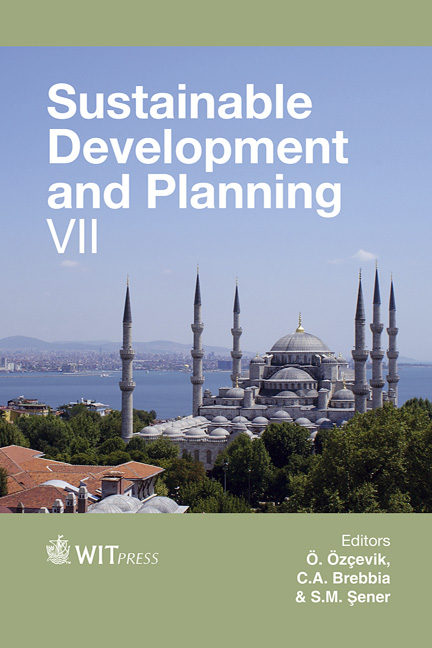Planning For Sustainable Livelihoods In Urban Transitional Zones By Incorporating Traditional Community Concepts
Price
Free (open access)
Transaction
Volume
193
Pages
12
Page Range
95 - 106
Published
2015
Size
532 kb
Paper DOI
10.2495/SDP150081
Copyright
WIT Press
Author(s)
M. Gibbens, C. B. Schoeman
Abstract
The focus of this paper is to outline a sustainable livelihood development paradigm which could assist in addressing the challenges currently faced by the communities in urban transitional areas of South Africa, with specific attention to the contribution that the traditional community environment can make. The reasoning behind the development of such a paradigm is to enrich the sustainable development discourse by exploring place identities, the resilience of community tradition and cultural precepts, particularly in the developing world. This should assist in providing a viable self-reliance livelihood option (especially in urban transitional zones) for communities to survive and thrive in the face of the pressures of urban growth, the deteriorating quality of life and the homogenisation of urban form and design in the developing world. The key concepts, from which this paradigm is developed, are collaborative leadership, community-based systems, the importance of land (environment), economy of affection and agriculture. These concepts are crucial in the current approach to planning, where the relevance of the traditional community environment (predominantly as it applies in Africa) supports the contention that implementation of communitybased planning should evolve beyond planning for a community to planning by a community for itself. The proposed outcome of this process is a sustainable livelihood paradigm incorporating traditional community concepts, which supports self-reliant development.
Keywords
urban transition zones, sustainable development, collaborative leadership, community-based systems, the importance of land (environment), economy of affection, agriculture, self-reliance development





